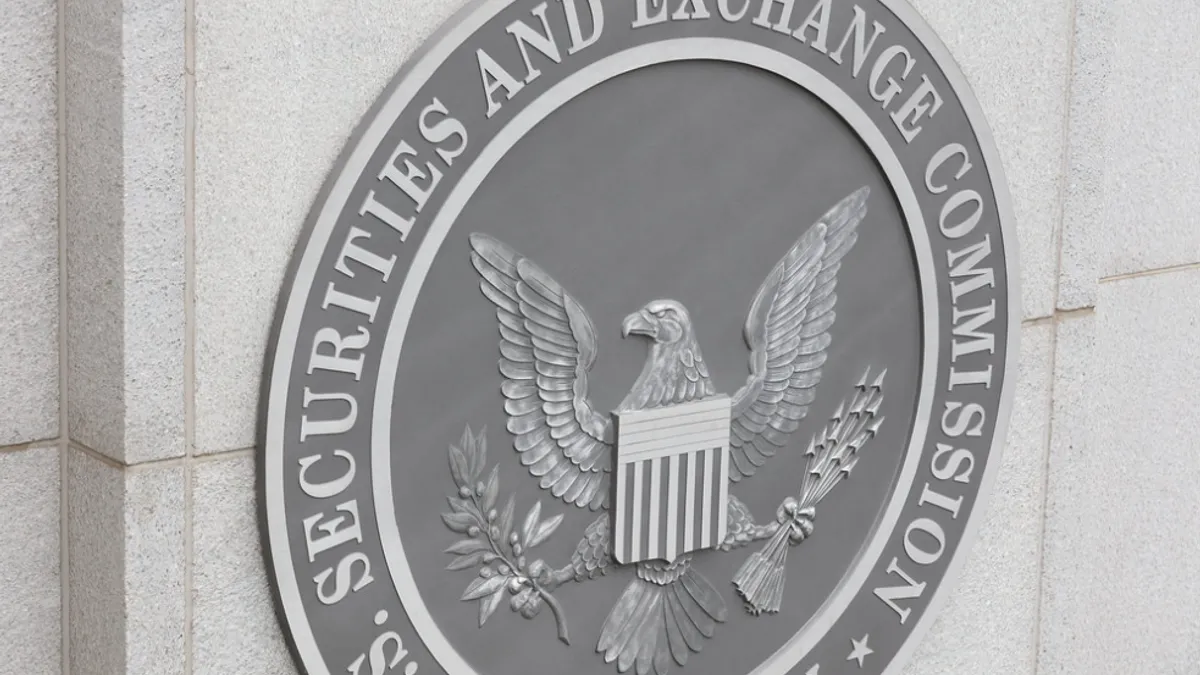The Securities and Exchange Commission’s EPS initiative, launched last year to weed out earnings-per-share manipulation, is based on the prevalence of the numeral “4” in companies’ quarterly reports, The Wall Street Journal reported.
The SEC has taken action against three companies and reportedly is investigating more under the initiative. What makes the effort different from the agency’s other enforcement efforts is its use of risk-based data analytics to identify accounting anomalies.
In its first two enforcement cases, it charged Georgia-based Interface, a modular carpet manufacturer, with making unsupported accounting adjustments over multiple quarters, and it charged Pennsylvania-based Fulton Financial Corporation with using a valuation allowance for its mortgage servicing rights that were at odds with the methodology it said it was using.
Both Interface and Fulton settled with the agency without admitting or denying wrongdoing and paid fines of $5 million and $1.5 million, respectively.
In the most recent action, taken about two months ago, Healthcare Services Group agreed to a $6 million fine for failing to record lawsuit-related loss contingencies, which enabled it to show more earnings than it should have. It also neither admitted nor denied wrongdoing.
Enforcement aid
Weeding out these types of accounting irregularities from the roughly 5,500 companies publicly listed in the U.S. is time consuming and labor intensive, but the agency is leveraging the initiative to give itself a leg up by running data from companies' quarterly reports through its number-crunching software.
“Our in-house data analytic capabilities [helps us] identify improper accounting and disclosure practices that mask volatility in financial performance,” said Gurbir Grewal, the SEC's enforcement chief until about three months ago.
To identify companies that might be making their earnings per share ratio look better than it is, the SEC maintains a database of each company’s quarterly reports dating back about a dozen years. Starting last year, it began comparing a company’s recent quarterly report against the database and, by using the numeral “4” as a benchmark, looks for those that might be improperly rounding up their earnings.
Companies that are improperly rounding up will likely show the numeral “4” in their earnings reports fewer times than they should. The idea is that, statistically, each numeral should appear in the tenths place of a company’s unrounded EPS 10% of the time, the Journal reported. For those in which the numeral “4” appears less than that, there’s an increased chance the company is improperly rounding up its earnings.
Joseph Grundfest, a former SEC commissioner who spoke to the Journal, called the numeral "4" a "remarkably powerful predictor of problematic accounting behavior.”
Given the enforcement focus of SEC Chair Gary Gensler, there’s a good chance actions against questionable EPS numbers will pick up now that the initiative has shown success.
“Three cases is not a huge amount, but it does show that they’re focused on it,” David Rosenfeld, associate law professor at Northern Illinois University and former co-head of enforcement for the SEC’s New York office, told the Journal. “It takes a fair amount of time to unravel cases involving accounting issues.”














